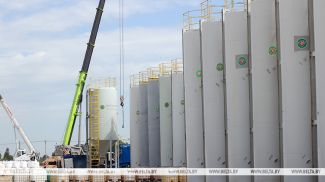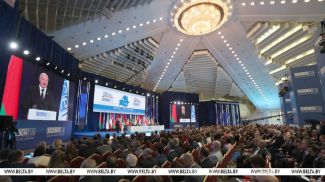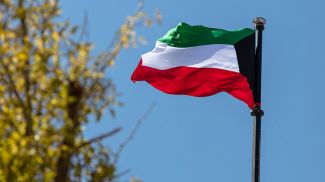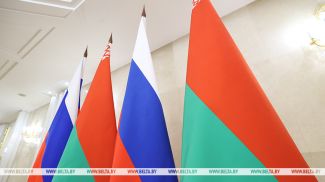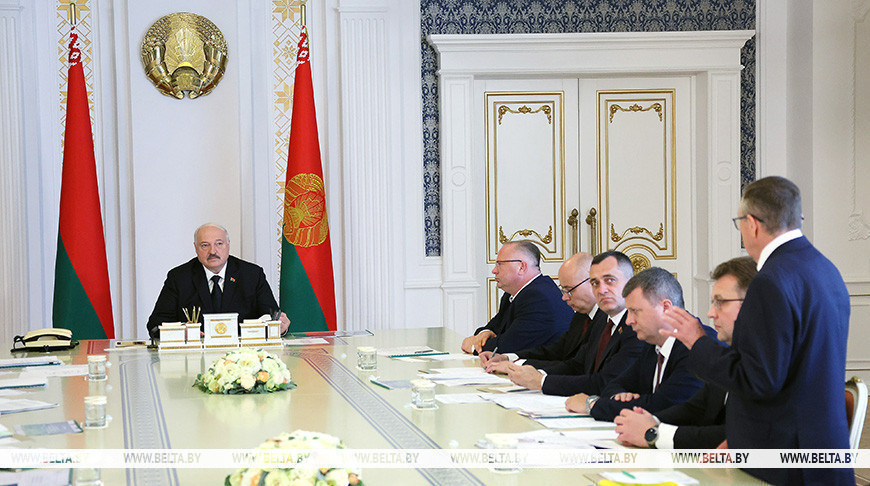
MINSK, 22 July (BelTA) – Subsurface exploration for oil should produce better outcomes, Belarusian President Aleksandr Lukashenko said at a meeting to discuss production of hydrocarbons in the country, BelTA has learned.
At the meeting, Aleksandr Lukashenko set ambitious tasks for domestic oil producers and suggested ramping up exploration and developing new fields. "I know for a fact that we have reserves here, just as in every other area of our work. So we shouldn’t hesitate; we need to drill and drill. But drill smart, using new technologies! Any drilling, any geological exploration must be justified," the Belarusian leader emphasized.
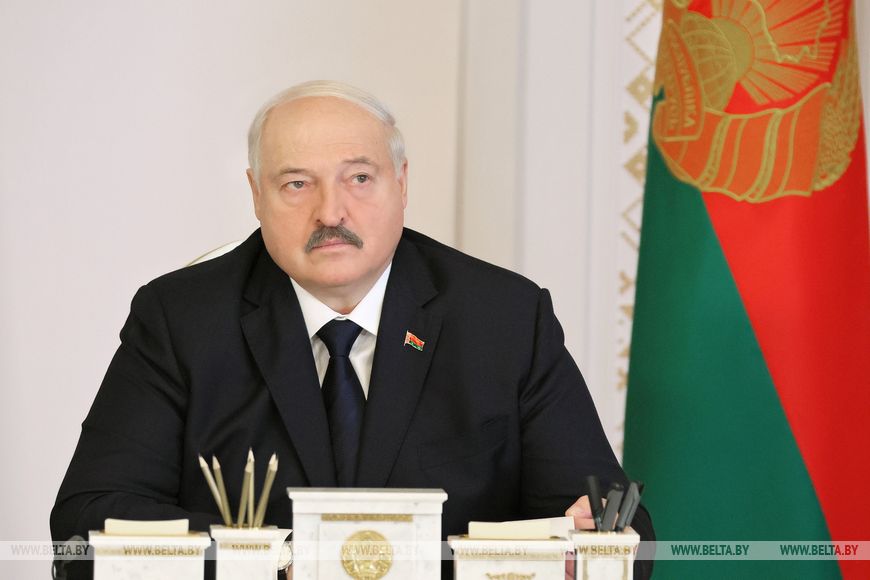
In this regard, he asked scientists from the Research and Production Center for Geology at the Ministry of Natural Resources and Environmental Protection why some wells transferred to the oil production company remained unused. The president demanded that the National Academy of Sciences, the Research and Production Center for Geology, and Belorusneft work in close coordination.
Addressing Deputy Minister of Natural Resources and Environmental Protection Viktor Galanov, the head of state instructed him to assess the prospects of Belarus’ mineral resource base and outline the challenges facing the oil industry.
Two enterprises are engaged in geological exploration in the country. These are the Research and Production Center for Geology under the Ministry of Natural Resources and Environmental Protection and Belorusneft. Among other tasks, the Research and Production Center for Geology conducts preliminary hydrocarbon exploration and identifies potential oil-bearing zones.
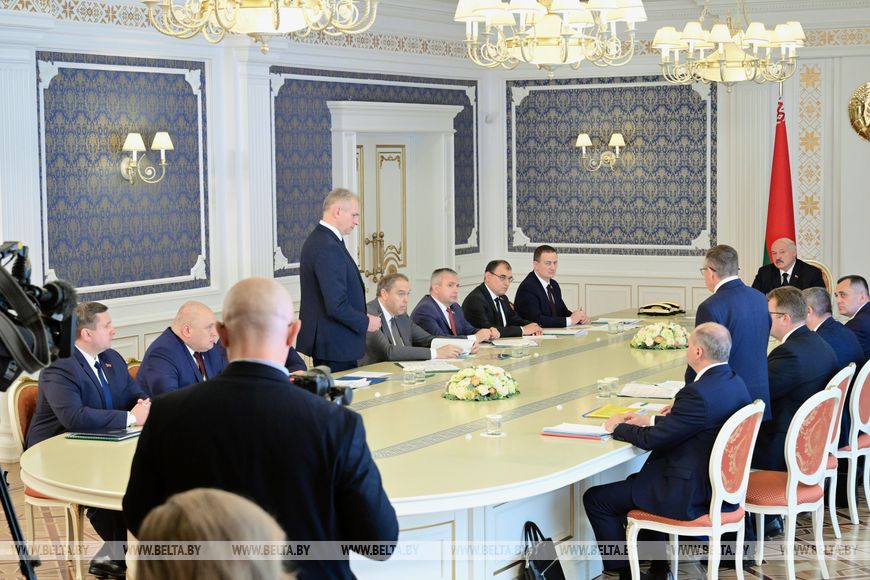
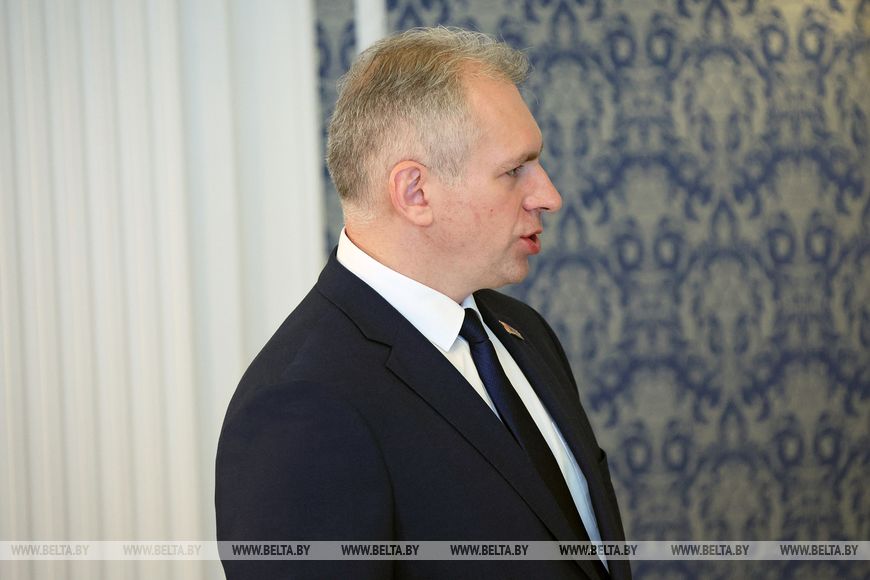
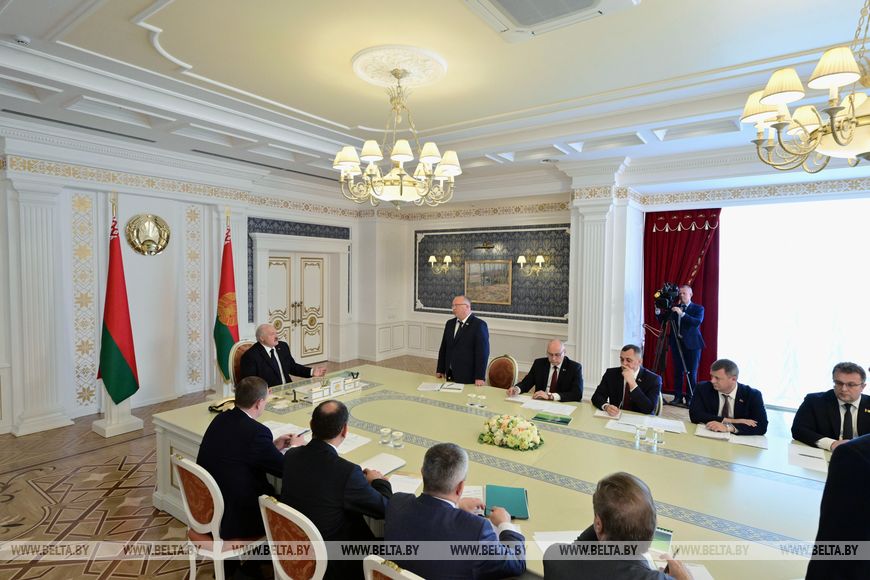
At the meeting, Aleksandr Lukashenko set ambitious tasks for domestic oil producers and suggested ramping up exploration and developing new fields. "I know for a fact that we have reserves here, just as in every other area of our work. So we shouldn’t hesitate; we need to drill and drill. But drill smart, using new technologies! Any drilling, any geological exploration must be justified," the Belarusian leader emphasized.

In this regard, he asked scientists from the Research and Production Center for Geology at the Ministry of Natural Resources and Environmental Protection why some wells transferred to the oil production company remained unused. The president demanded that the National Academy of Sciences, the Research and Production Center for Geology, and Belorusneft work in close coordination.
Addressing Deputy Minister of Natural Resources and Environmental Protection Viktor Galanov, the head of state instructed him to assess the prospects of Belarus’ mineral resource base and outline the challenges facing the oil industry.
Two enterprises are engaged in geological exploration in the country. These are the Research and Production Center for Geology under the Ministry of Natural Resources and Environmental Protection and Belorusneft. Among other tasks, the Research and Production Center for Geology conducts preliminary hydrocarbon exploration and identifies potential oil-bearing zones.

“So you have smelled it, touched it and told Belorusneft to drill!” - the president specified.
Viktor Galanov noted that the work is arranged in the following way: After establishing the presence of possible hydrocarbon reserves, Belorusneft moves to further exploration, development, and finally, industrial operation.

Aleksandr Lukashenko urged to increase the efficiency of developing potential hydrocarbon deposits. It is necessary to minimize or eliminate situations in which oil workers come across ordinary water while developing a potential oil deposit.
During geophysical work, oil and water produce the same results in all categories, making it challenging to distinguish between them. “Therefore, only drilling will allow us to determine which mineral resource is located underground at a depth of 3 km or 4 km,” Viktor Galanov answered.
Chairman of the State Control Committee Vasily Gerasimov said that the Scientific and Practical Center for Geology drilled seven wells but Belorusneft discarded them as unpromising.

“In other words, Belorusneft cross-checked after the scientists and concluded: guys, we don’t need such wells and your proposals, because there is nothing there? Thus, the scientific and practical center wasted its time (and this is not one year), right?” the president asked.
“There is hardly any practical result from their activities,” Vasily Gerasimov stated.
“And what kind of results do we need from them? If it [oil] is not there, then it is not there.”
Viktor Galanov explained that the discussion concerned seven wells currently on the books of the Research and Production Center for Geology. However, over the past decades, around 14 wells had been transferred to Belorusneft for industrial operation. Extracting oil from the remaining seven wells is simply economically unviable, so they now serve scientific purposes. Currently, 14 additional wells with potential oil reserves are in the works. They still need to be tested.
Aleksandr Lukashenko asked Belorusneft Director General Aleksandr Lyakhov for his perspective on geophysical research and the subsequent transfer (or non-transfer) of wells. The company head clarified that the Ministry of Natural Resources and Environment Protection and its affiliated Research and Production Center for Geology handle the highest-risk phase: parametric exploratory drilling. Global practice and statistics indicate that only one in three wells yields oil or gas.
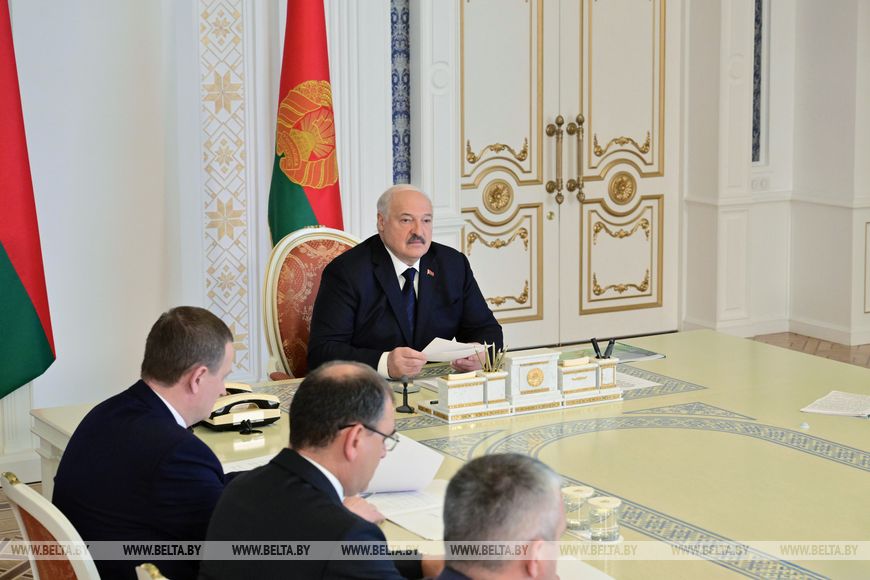
The others are incapable of producing commercially viable output. “This is standard worldwide. These are fields with reserves under 100,000 tonnes. A single well of this type might yield no more than 300–400 tonnes annually -requiring dedicated infrastructure to integrate the oil into the collection system. The return on investment is virtually nonexistent. This is how it works in many countries,” Aleksandr Lyakhov said.
Nevertheless, without this work, which often fails to deliver the desired outcome, it would be nearly impossible to understand the country’s subsurface resources. The Belorusneft director general cited an example: before the discovery of the Rechitsa field, around 90 wells had been drilled, some of which yielded nothing.
Aleksandr Lukashenko asked Belorusneft Director General Aleksandr Lyakhov for his perspective on geophysical research and the subsequent transfer (or non-transfer) of wells. The company head clarified that the Ministry of Natural Resources and Environment Protection and its affiliated Research and Production Center for Geology handle the highest-risk phase: parametric exploratory drilling. Global practice and statistics indicate that only one in three wells yields oil or gas.

The others are incapable of producing commercially viable output. “This is standard worldwide. These are fields with reserves under 100,000 tonnes. A single well of this type might yield no more than 300–400 tonnes annually -requiring dedicated infrastructure to integrate the oil into the collection system. The return on investment is virtually nonexistent. This is how it works in many countries,” Aleksandr Lyakhov said.
Nevertheless, without this work, which often fails to deliver the desired outcome, it would be nearly impossible to understand the country’s subsurface resources. The Belorusneft director general cited an example: before the discovery of the Rechitsa field, around 90 wells had been drilled, some of which yielded nothing.




